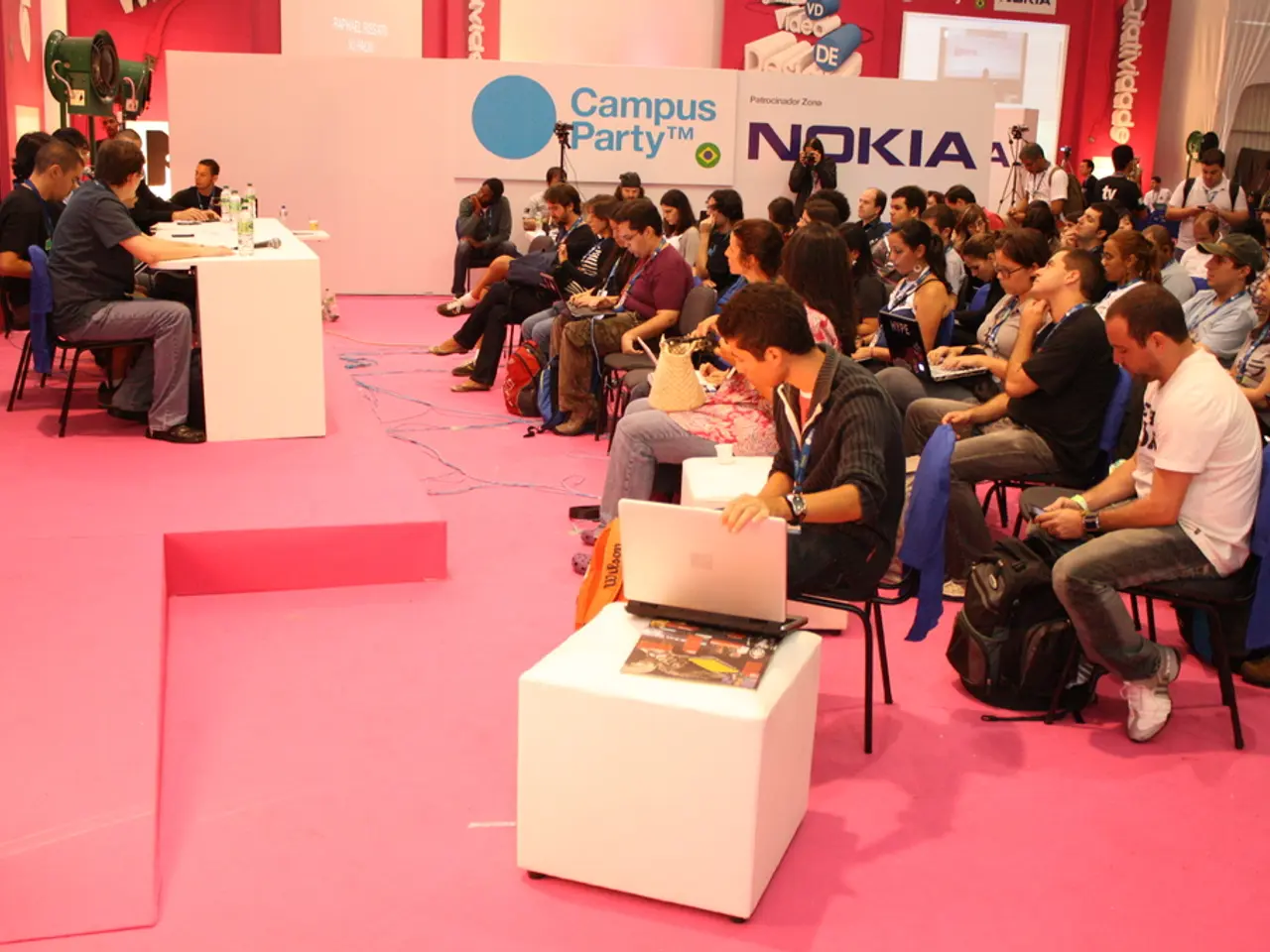Country in Turmoil: Internal Discord and Polarization Abound
In the digital age, social media platforms have become a significant source of news and information for millions of users worldwide. However, the rise of personalized algorithms and the prioritization of sensationalist or false information has created a landscape where political affiliations are strengthened and disinformation spreads rapidly.
The self-reinforcing nature of social media algorithms can create a dangerous cycle, further entrenching beliefs and making it more difficult to break out of the echo chamber. This divide between political ideologies grows wider as users become increasingly entrenched in their beliefs and exposed to harmful mistruths. Lack of awareness makes users more susceptible to disinformation, as they may not critically evaluate the sources or credibility of the information they encounter.
To combat the spread of political disinformation on social media and promote media literacy, a combination of coordinated measures is necessary.
Key measures include:
- Multi-actor collaboration: Governments, social media platforms, civil society, educators, and communities must work together to create and enforce policies that uphold accountability and human rights standards on content moderation, especially in local languages, to curb hate speech and misinformation.
- Strengthening platform governance: Social media companies should enhance transparency, be held accountable for content moderation, and avoid self-regulation alone. States must enforce clear policy guidelines, embedding responsible digital governance as part of broader atrocity prevention and human rights protections.
- Pre-bunking and media literacy training: Educating people to recognize and resist misinformation before exposure (pre-bunking) through repeated exposure to weakened false information and teaching manipulation tactics builds psychological immunity against disinformation. This can be done in classrooms, workplaces, or virtual communities with trained facilitators.
- Empathetic engagement and debunking: When addressing firmly held misinformation, behavioral science recommends empathetic, nonjudgmental discussions rather than confrontational debunking, which can entrench beliefs.
- Proactive policy intervention targeting AI-driven disinformation: Given the accelerating role of AI technologies (e.g., deepfakes) in spreading falsehoods, governments should develop forward-looking regulations and countermeasures specifically addressing AI-generated political disinformation.
Together, these approaches combine prevention, education, regulation, and technological oversight to reduce political disinformation’s reach and impact while empowering individuals with critical media literacy skills. This multi-layered strategy aligns with calls from international experts and recent research emphasizing that no single actor can solve the disinformation challenge alone.
Encouraging media literacy can help individuals break free from the echo chamber effect and become more discerning consumers of news and information. To combat the spread of disinformation, it's crucial for individuals to promote media literacy, critical thinking, and engagement with diverse perspectives. By doing so, we can build a more informed, connected society.
Many users believe the content they see on social media represents an unbiased view of reality, unaware of the algorithms shaping their information intake. To build a more informed, connected society, we must promote media literacy, critical thinking, and engagement with diverse perspectives.
- Therapists can conduct media literacy training sessions to help individuals identify and resist misinformation, thereby reducing the impact of political disinformation on social media.
- Enhancing transparency in the therapy industry, allowing therapists to collaborate with social media platforms, can aid in addressing disinformation and improve the quality of information access for users.
- As entertainment can influence people's perceptions, therapists can also play a role in helping users differentiate factual news from biased or sensationalized content, fostering a more discerning society.







